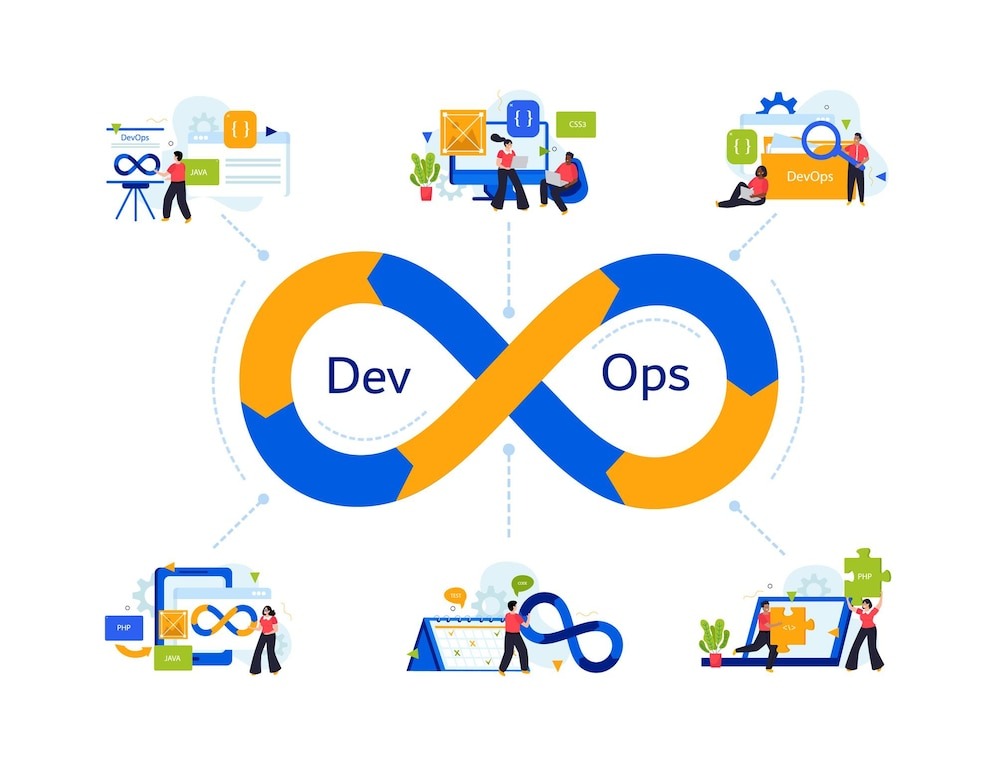Agile and DevOps Transforming Software Development
In the realm of software development, where innovation and speed reign supreme, two methodologies have emerged as champions of efficiency and productivity: Agile and DevOps. These two approaches, although distinct in their focus, share a common goal — to streamline the development process, accelerate delivery, and enhance the overall quality of software products. Let’s delve into why Agile and DevOps have become indispensable in today’s fast-paced digital landscape.
Agile: Embracing Flexibility and Collaboration
Agile methodology revolutionized software development by advocating for iterative development cycles and continuous feedback. Unlike traditional waterfall approaches, where requirements are fixed upfront and changes are difficult to accommodate, Agile embraces change as a natural part of the development process. By breaking down the project into smaller, manageable chunks known as iterations or sprints, Agile enables teams to adapt to evolving requirements and customer feedback rapidly.

Collaboration stands as one of the fundamental principles of Agile. Cross-functional teams comprising developers, testers, designers, and product owners work closely together throughout the development lifecycle. This collaboration fosters transparency, encourages knowledge sharing, and ensures that everyone is aligned towards a common goal.
The benefits of Agile are manifold. It promotes faster time-to-market, as features are delivered incrementally, allowing for early customer feedback and validation. Moreover, Agile enhances product quality by emphasizing continuous testing and integration, thereby reducing the likelihood of defects slipping into the final release. Ultimately, Agile empowers teams to respond swiftly to changing market dynamics and customer needs, driving innovation and competitiveness.
DevOps serves as the bridge between Development and Operations, connecting these traditionally separate domains into a cohesive and collaborative entity.
While Agile focuses on the development phase, DevOps extends the principles of agility to the entire software delivery pipeline, encompassing development, testing, deployment, and operations. At its core, DevOps seeks to break down silos between development and operations teams, fostering a culture of collaboration, automation, and continuous improvement.
Traditionally, development and operations teams operated in isolation, leading to friction, delays, and inefficiencies during the deployment and maintenance phases. DevOps addresses these challenges by promoting automation, infrastructure as code (IaC), and continuous delivery practices. By automating repetitive tasks, such as code deployment, testing, and infrastructure provisioning, DevOps reduces manual errors, accelerates deployment cycles, and increases operational efficiency.
Moreover, DevOps emphasizes a shift-left approach to quality assurance, where testing is integrated early into the development process. This proactive stance towards quality helps identify and rectify issues sooner, minimizing the risk of costly rework and downtime in production environments.
The symbiotic relationship between Agile and DevOps is evident. Agile lays the foundation for iterative development and customer-centricity, while DevOps provides the technical capabilities and automation tools to enable rapid and reliable delivery. Together, Agile and DevOps form a powerful alliance that enables organizations to thrive in today’s digital landscape.
Why Agile and DevOps are Essential
In a world where technology is constantly evolving, and customer expectations are ever-changing, the ability to deliver high-quality software quickly and efficiently is paramount. Agile and DevOps provide the agility, flexibility, and automation necessary to meet these demands head-on.
By adopting Agile and DevOps methodologies, organizations can:
Accelerate Time-to-Market: Agile and DevOps enable rapid delivery of features and updates, allowing organizations to stay ahead of the competition and seize market opportunities swiftly.
Enhance Collaboration: By breaking down organizational silos and fostering cross-functional collaboration, Agile and DevOps promote a culture of shared responsibility and collective ownership.
Improve Quality: Continuous testing, integration, and delivery practices advocated by Agile and DevOps result in higher-quality software with fewer defects and vulnerabilities.
Increase Customer Satisfaction: By incorporating customer feedback early and often, Agile and DevOps ensure that software products meet the evolving needs and preferences of end-users.
Drive Innovation: The iterative nature of Agile and the focus on automation and continuous improvement in DevOps foster a culture of experimentation and innovation, enabling organizations to push boundaries and explore new possibilities.
In conclusion, Agile and DevOps have emerged as indispensable methodologies for modern software development. By embracing the principles of agility, collaboration, and automation, organizations can unlock new levels of efficiency, speed, and quality in their software delivery processes. As technology continues to evolve, Agile and DevOps will remain at the forefront, empowering organizations to innovate, adapt, and thrive in an ever-changing digital landscape.

